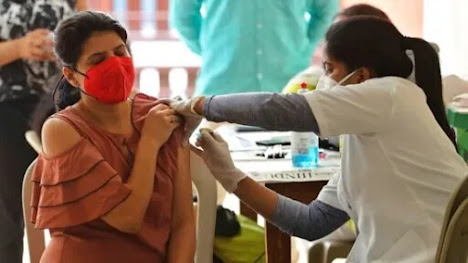Nearly one-third Covaxin Recipients Experience Health Issues One Year Later: BHU Research
Over 30% of people who received the Covaxin vaccine by Bharat Biotech reported experiencing 'adverse events of special interest' (AESI) after one year. These are the findings of a study conducted by Banaras Hindu University (BHU)
Out of the 926 participants in the study, nearly half complained of infections during the follow-up period, with viral upper respiratory tract infections being the most prevalent.
Serious AESI were reported in 1% of people
The study investigating the prolonged safety of the BBV152 vaccine in adolescents and adults found that serious adverse events of special interest (AESIs), such as stroke and Guillain-Barre syndrome, were reported in one percent of individuals.
Published in the journal Springer Nature, this research emerges following AstraZeneca's acknowledgment in a UK court that its Covid vaccine may lead to rare side effects like blood clotting and decreased platelet count.
According to the study, which spanned from January 2022 to August 2023 and involved 635 adolescents and 291 adults who received the BBV152 vaccine, close to one third of the participants experienced AESIs.
The most frequently observed disorders among adolescents post-vaccination were new-onset skin and subcutaneous disorders, general disorders, and nervous system disorders.
After one year of vaccination, participants were interviewed via telephone to assess any long-term adverse events of special interest.
Common AESIs in adolescents & adults
New-onset skin and subcutaneous disorders (10.5 per cent), general disorders (10. 2 per cent), and nervous system disorders (4. 7 per cent) were the common AESIs in adolescents.
General disorders (8.9 percent), musculoskeletal disorders (5. 8 percent), and nervous system disorders (5. 5 percent) were the common AESIs in adults.
4 deaths reported in study
Menstrual irregularities were identified in 4.6% of female participants. Ocular irregularities were noted in 2.7% and hypothyroidism in 0.6% of participants. The study also recorded four deaths among adults, with three females and one male.
All four had diabetes, three had hypertension, and two had a history of COVID-19 before vaccination.
Stroke was the main contributor in two deaths
Two deaths were attributed to strokes, while one fatality was linked to post-COVID-19 rhinocerebral mucormycosis, which reportedly developed following vaccination, according to caregivers as per the study.
A fourth death involved a woman who experienced multiple episodes of unconsciousness post-vaccination, with the cause remaining unidentified until her demise, according to PTI. Given the absence of a clear causal link, no definitive conclusions could be drawn from these occurrences.
The study emphasized the importance of prolonged surveillance to comprehend the long-term effects of Adverse Events of Special Interest (AESIs) and urged for larger-scale investigations into immune-mediated reactions following COVID-19 vaccination.
This study follows AstraZeneca's acknowledgment in a UK court that its Covid vaccine can induce rare side effects such as blood clotting and decreased platelet count.

